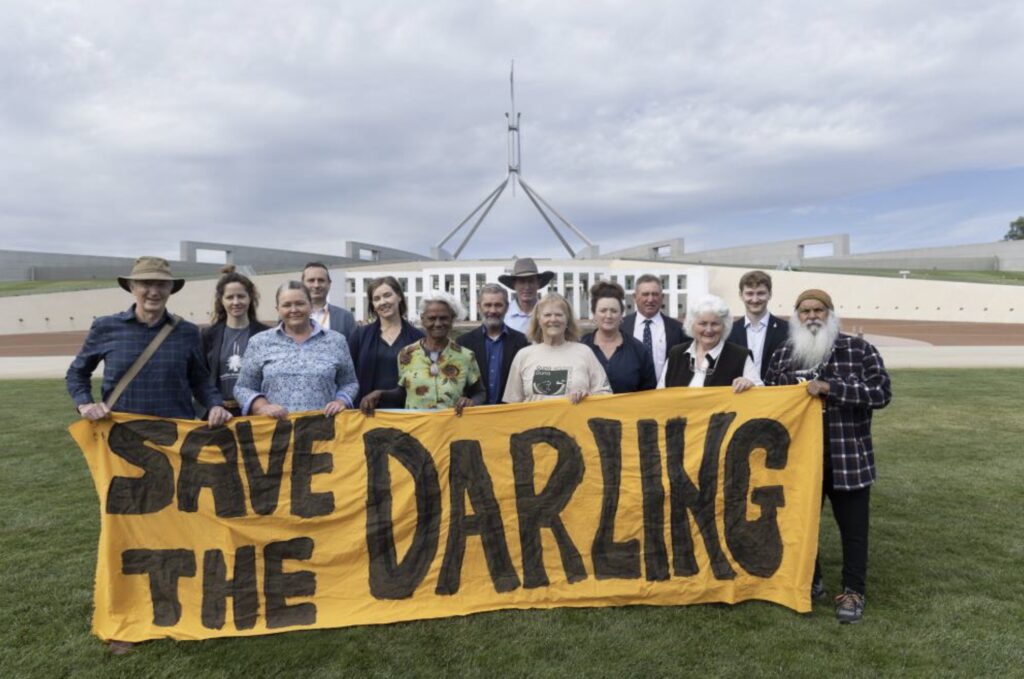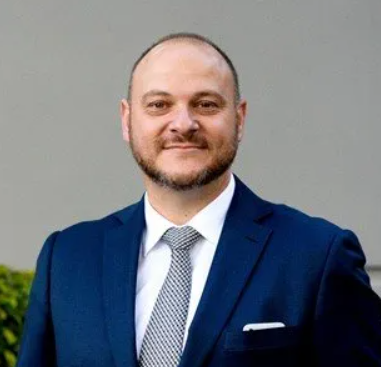One of the good news stories for nature in 2023 was the Albanese Government’s “Restoring our Rivers Bill”, described by the NSW Nature Conservation Council (NCC) as “a lifeline for our rivers”.

The legislation was passed in November and welcomed by the NCC because it would “finally get more water for the rivers and wetlands of the Murray-Darling Basin”.
“The Restoring Our Rivers Bill 2023 delivers a vital lifeline for inland rivers ahead of the looming drought. This is thanks to thousands of Australians across the Basin speaking up and demanding action,” the NCC said.
The problem
According to the NCC, the rivers of the Murray-Darling have been in trouble over the past decade evidenced by mass fish kills, toxic algal blooms, wetlands on fire and towns running out of drinking water.
“The problem is simple – too much water is being taken out of the rivers for irrigation, and there’s not enough for the plants, animals and people that need it to sustain them.
“This is what the Basin Plan was meant to address, by ensuring enough water would be set aside to keep the river healthy and flowing from source to sea. But dodgy political deals and delays have meant even more water has been sucked out – and our rivers have paid the price.
Community action
“For decades, community groups, First Nations leaders, farmers, fishers and environmental groups called on decision makers at state and federal level to reverse the over extraction of water.
“The deadly impact became clear during the 2019 drought, when entire communities ran out of water and 20 to 30 million fish died over a couple of days.
“The communities of inland NSW refuse to allow the Mighty Darling/Baaka River Basin to die without a fight.
“It was the persistence and expertise of voices from all over the Basin that pushed the Albanese opposition to promise to deliver the Murray-Darling Basin Plan in full before the 2022 federal election.
“A year later in NSW at the NCC Online Water Forum ahead of the state election, soon-to-be Water Minister, Rose Jackson, promised a NSW Labor government would support the full implementation of the Basin Plan.
Strength from alliance
During 2023, the NCC, Environment Victoria, Conservation Council South Australia and Queensland Conservation Council founded the Murray-Darling Conservation Alliance (MDCA).
“Our alliance pushed the Albanese government to stay the course and deliver on their election promise,” according to the NCC.
“The MDCA brought community representatives from all over the Basin to Canberra to impress on decision makers how important the rivers and wetlands of the Basin are to our spiritual, cultural, social and economic existence.
“The wonderful Gloria Jones, professional fisher from the Coorong hosted a BBQ brunch with fresh Coorong mullet in parliament house, attracting a host of MPs from right across the political spectrum.
The Bill
The ‘Restoring Our Rivers’ Bill aims to get the Basin Plan back on track.
“It’s the biggest win we’ve had in the Murray-Darling for years,” according to the NCC.
Here’s what you need to know:
1. Water can be bought for the environment again
Since 2015, governments have ruled out using the most effective and affordable method to get water for rivers – buying it from people who want to sell. Instead, they’ve favoured expensive projects that are either not proven to work or proven to not work. These have failed to deliver enough water and very little progress has been made on the Basin Plan as a result.
This new legislation allows the federal government to finally start buying water for the river again.
2. It opens the door to more flows in the Darling-Baaka
The Darling-Baaka has been devastated by massive fish kills in the last few years but little has been done to make sure the river has enough water to stop these disasters happening again.
The government has opened the door to allow additional water recovery for the Darling-Baaka but there are still many questions about how this will happen.
3. There are new powers to cancel dodgy water ‘offset’ projects
These projects were cooked up by NSW and Victorian state governments to avoid having to return water to the environment. The idea behind them is that parts of the river, like wetlands and lakes, can be engineered to use less water – and that these infrastructure projects can then “offset” unsustainable extraction. This dodgy scientific method has been slammed by experts and never proven to work in the real world.
This new legislation means the federal government can cancel projects that don’t stack up, with the disastrous Menindee Lakes project the first to go.
“We’ll also be pushing for greater scrutiny of the nine wetland engineering projects currently proposed in Victoria,” says the alliance.
4. 450 billion litres of water promised for the environment will be delivered by 2027
450 billion litres of water was promised in the Basin Plan and is absolutely vital to the health of the river system. However, under the previous Coalition government, a bogus “socio-economic test” was developed to limit how water could be recovered. This legislation removes this roadblock with a thoughtful process: considering socio-economic impacts, recovering water for rivers where it’s most effective, and supporting communities with targeted funding. The legislation delays the deadline (from 2024 to 2027) but makes sure we can’t continue to kick the can down the road.
5. Crucial improvements for First Nations water rights
The Murray-Darling is home to over 40 First Nations – yet they own just 0.2% of the water and have little say in how water is managed. Thanks to powerful advocacy from the Murray Lower Darling Rivers Indigenous Nations (MLDRIN) and First Peoples across the Basin, the Greens and Independent Senator Lidia Thorpe were able to secure changes in the legislation to begin to address these injustices.
Along with increased funding for Aboriginal water entitlements, there is also a pathway for First Nations to have a much greater say over how their waterways are managed and a mandate to consider whether the Water Act is consistent with the principles of the UN Declaration on the Rights of Indigenous Peoples (UNDRIP).
6. Independent audit of water recovery
We need a clear picture of how much water has been set aside for the river — and whether projects have delivered what they’ve promised. An independent audit is a no-brainer to help us get back on track.
7. Passed with the support of the Greens and crossbench
When the government first announced its legislation in September, NCC raised concerns that it didn’t go far enough. There were no guarantees that water would get to rivers and wetlands in the next few years, and First Nations were completely left out of the legislation.
Public pressure to strengthen the legislation helped the Greens and crossbench to negotiate a much better deal. It passed with the support of the Greens, and Independent Senators David Pocock, Lidia Thorpe, Jacqui Lambie and Tammy Tyrell.
The legislation had support from every Basin state government except Victoria, who sided with the irrigation lobby to oppose it.
About the alliance
The Murray-Darling Conservation Alliance (MDCA) is a national voice for the rivers, wetlands and wildlife of the Murray-Darling. Members include conservation groups in every Basin state – NSW, Vic, SA and QLD – representing half a million people in rural communities and east-coast cities.
Each group has been advocating for the environment at a state level for more than 50 years. Together they have a shared vision for healthy inland rivers.
Members include: Nature Conservation Council NSW, Queensland Conservation, Environment Victoria, and Conservation Council SA.
The alliance came out in strong support of expanding water buybacks from willing sellers as the best way to return enough water to Australia’s biggest river system.
Major Moogy Sumner, a Ngarrindjeri/Kaurna Senior Elder said: “The government needs to not just be listening, but actually hearing and implementing the teaching from First Nations people on how to look after our rivers and water systems. We need real water returned to the river to keep our waters clean and pure not just for us, but for everyone.”
Jacqui Mumford, CEO of NCC said: “We commend the Federal Government for wanting to cancel the Menindee project, which was never going to work. Now we need to see how they intend to return real water to the rivers, in particular the Darling-Baaka in the leadup to the next drought.
“We’ve seen time and time again that the devil is in the details. We are still waiting to understand how the government is planning to ensure the Darling-Baaka is protected.”
Read more stories of people across the Basin who support healthy rivers.
Enjoy this article? Explore more of our ESG News below:
Environmental Justice News | Social Justice News | Good Governance News | Climate Change News | ESG Investing News | Housing News | Renewable Energy News | Breaking Central Coast News
Prefer your news delivered to your email inbox?
Click here to subscribe to our free weekly newsletter to stay up-to-date with local, national and global ESG news.


